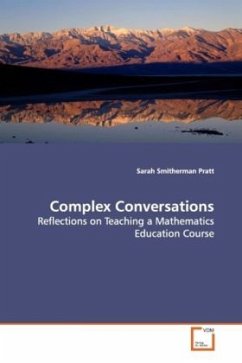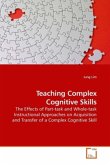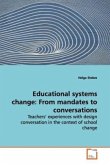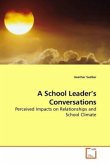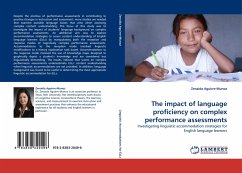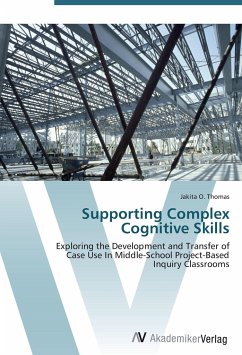Teaching and learning involve reflexive actions and
should be chosen thoughtfully and deliberately, not
because someone has decided what works. In this
study, I examine how complex conversations might
offer pedagogical and theoretical (re)considerations
in a teacher education course on mathematics. The two
main research questions I explore are:
1) How can complex conversations those involving
multiple perspectives aid pre-service teachers in
becoming reflective practitioners, effective
professionals, and inquiring pedagogues?
2) How am I transformed as I experience and reflect
on participation in these complex conversations?
Complex conversations encourage a different form of
interaction, a different way of imagining the world.
May mathematics education be(come) a field of study
that allows for differences, multiple perspectives,
and authentic questions, where ideas do not converge
or diverge but co-emerge
should be chosen thoughtfully and deliberately, not
because someone has decided what works. In this
study, I examine how complex conversations might
offer pedagogical and theoretical (re)considerations
in a teacher education course on mathematics. The two
main research questions I explore are:
1) How can complex conversations those involving
multiple perspectives aid pre-service teachers in
becoming reflective practitioners, effective
professionals, and inquiring pedagogues?
2) How am I transformed as I experience and reflect
on participation in these complex conversations?
Complex conversations encourage a different form of
interaction, a different way of imagining the world.
May mathematics education be(come) a field of study
that allows for differences, multiple perspectives,
and authentic questions, where ideas do not converge
or diverge but co-emerge

